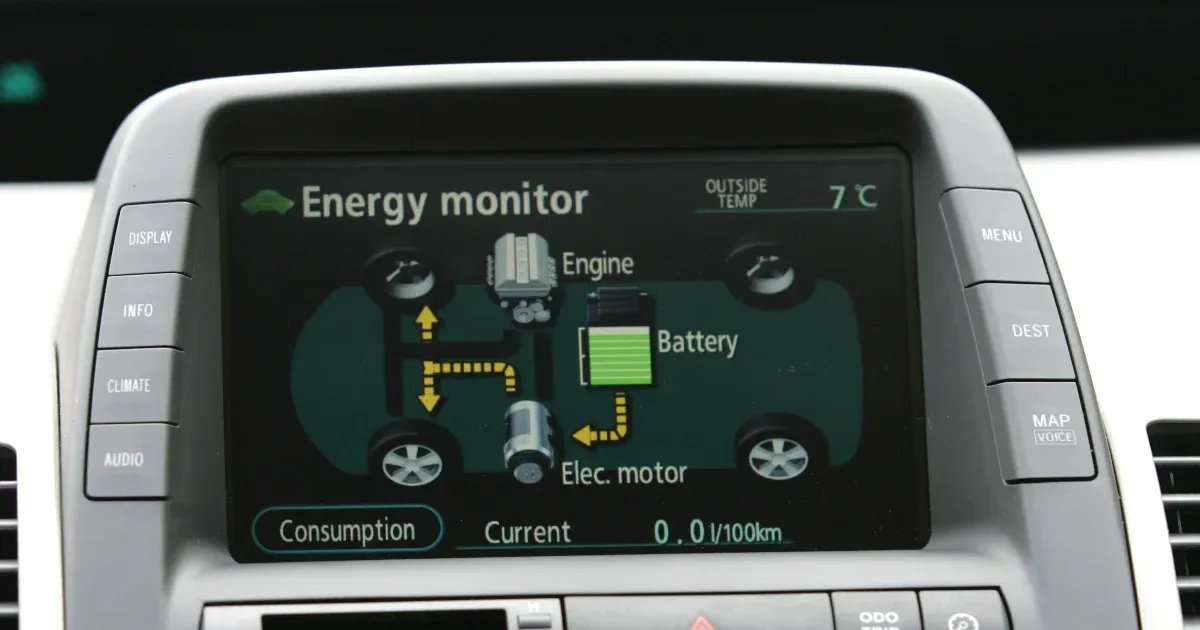This article was published by Telex and Car magazine It can be read in the context of its collaboration.
In fact, the electric motor in most electric and hybrid cars performs two roles. One is when you are driving the car forward or backward, and the other function becomes important when you slow down and brake. In this case, it begins to work as a generator, converting the car's kinetic energy into electricity, which it feeds back into the battery, thus increasing the range of the electric car, and in the case of hybrid cars, the distance that can be traveled without a gasoline engine and average consumption. This function is also called recovery.
The importance of the solution is faithfully reflected in the fact that the energy released during braking is converted into heat that cannot be reused in the braking system of a conventionally operated petrol or diesel car, i.e. it is actually wasted. This provides up to 20 percent greater efficiency for cars using electric recovery compared to internal combustion engine designs.
to request
In carefully designed systems, recharging efficiency can reach 50 percent. This may sound good, but it also shows that no more than half of the energy invested, for example used in acceleration, can be recovered through recovery. We can also look at the fact that rolling down a very long slope and braking cannot gather as much energy in this way as we can climbing the same hill by car.
In some cases, we are better off with feedback. When we look, for example, at a section of road and the traffic in front of us, we see that we are able to move for a long time without using the motor, using the current momentum, we would be better off moving to a lower feedback phase, or even eliminating feedback altogether. This mode of operation is often called cruising, in which the wheels of the car move freely, separate from all drives, making optimal use of the existing kinetic energy.
There is no possibility of recovery during deceleration if, due to the resulting decrease in speed, we have to step on the gas again afterwards, which involves energy consumption. This is especially useful on the highway. In some cars, the cruise control system does this on its own based on data from the navigation system. However, in the city, where traffic is busier and there are frequent decelerations, accelerations, stops and starts, strong recovery is of course the way to go.
Car weight
The weight of the vehicle is important not only in terms of kinetic energy, but also in terms of potential energy during refueling. This is the energy that builds up in the car as it climbs up a hill. To understand this important connection, it is enough to consider that a blow caused by a two-kilogram metal ball falling on our head from a height of one meter hurts us much more than a crumpled sheet of paper.
If the car is heavy, it can recover more energy when rolling down a slope with a level difference of 100 meters than lighter types, as more mass must be kept on the brakes during recovery. It's a bit like riding a bike. If we pedal faster in high gear, we extract more power from the dynamo and the light will shine brighter.
What is the lesson? If someone is driving a heavy electric vehicle, especially when going downhill, make sure to use only the electric brakes and use the conventional braking system as little as possible. This ensures the best possible overall efficiency despite the heavy weight of the vehicle.
In some electric cars, it is also possible to drive entirely with one pedal, so all traffic situations can be solved by simply pressing and releasing the accelerator. This is possible if the feedback can be adjusted to such an extent that the car slows to a complete stop after releasing the accelerator.
But why is there still a need for a traditional braking system? This is because neither the deceleration force of the electric motor, which sometimes acts as a generator, nor the absorption capacity of the battery is sufficient for emergency braking. In such cases, the traditional braking system must assume the main role and stop the car in the traditional way.
The same applies to roads that make greater use of the drive train, for example, when the road descends onto steep slopes with many turns. Here it becomes clear how the car manufacturer dealt with the transition process, that is, the change from regenerative braking to conventional braking. Ideally, the driver will not notice this, but even in the prestige class, this issue is not always implemented well. All this affects not only the efficiency of feeding, but also the feeling of comfort. The inevitable sudden jolt or jolt during the transition between the two braking modes is very annoying.
It is important to know that the brake lights may not come on when the vehicle is under heavy recovery and decelerating intensively. It is worth checking the rearview mirror to see if they are keeping the following distance behind us. The electric braking system only sends a signal to the brake lights if the vehicle speed exceeds 4.68 km/h per second. When the brake pedal is depressed, the red lights are always on, regardless of whether the system is recovering in the first stage or not, before the conventional brakes are activated. We can also send a message to the person behind us with a simple tap on the brake to be careful, we are already slowing down.












































